
Starting law school can feel overwhelming, and the right books can make all the difference. These must-read titles help first-year law students build strong foundations in legal thinking, writing, and understanding core concepts, making your transition into law school smoother and more confident.
V N Shukla’s Constitution of India
VN Shukla’s Constitution of India remains one of the most authoritative and respected academic commentaries on the Indian Constitution, refined over thirteen celebrated editions. The latest edition, revised by Prof. (Dr.) Mahendra Pal Singh, incorporates major constitutional amendments—including the 103rd, 104th, 105th, and 102nd—and important developments in constitutional law. It discusses landmark Supreme Court rulings such as Common Cause (passive euthanasia) and Navtej Singh Johar (LGBTQI+ rights), while maintaining the clarity and depth the book is known for. Frequently cited by courts, this work continues to be an essential reference for students, teachers, judges, practitioners, government officials, NGOs, and anyone studying Indian constitutional law.
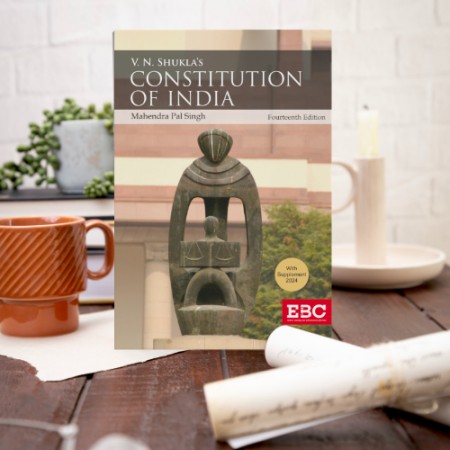
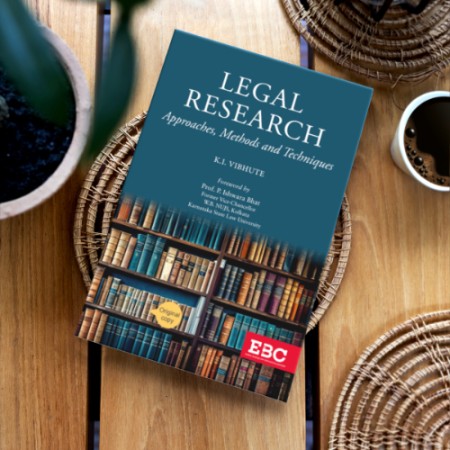
Legal Research: Approaches, Methods and Techniques
This book offers a comprehensive foundation in the methods and approaches of legal research, designed to help students and researchers conduct research with accuracy and clarity. Covering fundamentals, doctrinal and non-doctrinal approaches, and modern transdisciplinary methods, it equips readers to understand and analyse the law–society relationship effectively. Each chapter begins with focused quotes and clear learning objectives for easier navigation. The three-part structure makes the text systematic and practical for university courses, including NLUs. Annexures on UGC anti-plagiarism rules and citation guidelines make it an essential, up-to-date research companion.
Administrative Law
This book offers an in-depth and up-to-date analysis of the core principles of administrative law, with a strong focus on how they protect citizens against administrative action. The 10th edition is extensively revised, incorporating major recent case law and contemporary developments to present a clear, contextual understanding of this evolving field. Written in simple, accessible language, it critically examines administrative powers, remedial measures, and judicial safeguards. Rich case discussions, a detailed subject index, and end-of-chapter readings make it ideal for law students as well as judges, advocates, officials, and academicians seeking a reliable reference.
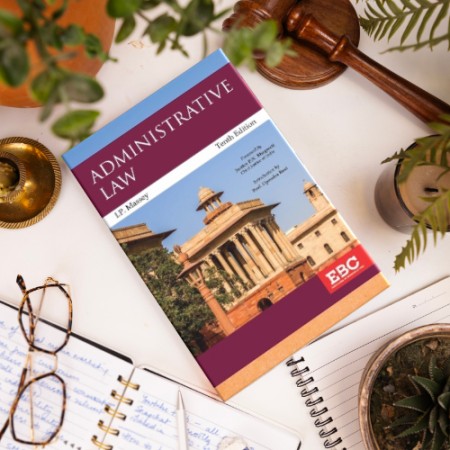

Life At Law School
Life at Law School by Avani Bansal is a practical, relatable guide for anyone entering or navigating law school. Blending personal insights with actionable advice, the book walks you through academics, moots, internships, research, networking, and career planning with step-by-step clarity. It helps you make informed choices—from selecting a law school to shaping your professional journey. Whether you aim for corporate practice, policy, academia, litigation, or the judiciary, this book builds the mindset and skills needed to excel. A must-have mentor in book form for every law aspirant and law student.
Jurisprudence and Legal Theory
Widely prescribed across Indian universities, this authoritative work by a former Dean of Law at Osmania University offers a comprehensive exploration of Jurisprudence and Legal Theory. The author ensures the content aligns closely with university curricula, making it exceptionally student-friendly. Designed to give learners a solid grasp of foundational concepts, the book also provides clear direction for deeper study and research. A dependable and thorough guide for mastering the subject.
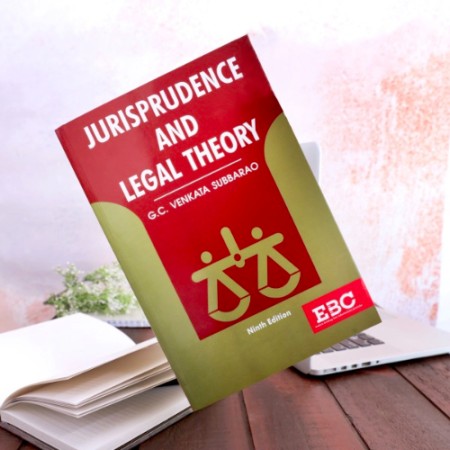

Avtar Singh’s Law of Contract & Specific Relief
Avtar Singh’s Law of Contract and Specific Relief remains one of the most trusted texts on contract law, valued for its clarity and practical insight. Extensively revised in its thirteenth edition by Prof. Rajesh Kapoor, it incorporates major case law and statutory updates, including the Specific Relief (Amendment) Act, 2018, which shifted specific performance from an exception to the general rule. The book also covers substituted performance and the role of experts under the amended framework. A new feature, chapter-wise lists of recommended articles available on SCC Online, enhances academic depth. Combining doctrinal precision with practical wisdom, this edition continues to be indispensable for students, practitioners, judges, and researchers.
B.M. Gandhi’s Family Law Volume 1
The revised Volume 1 of B.M. Gandhi’s Family Law offers a fully updated and comprehensive treatment of both codified and uncodified family law. Key chapters on divorce, maintenance, and custody have been expanded with the latest case law, including decisions on bigamy, adultery, coercion, live-in relationships, same-sex relationships, and Triple Talaq. The book discusses significant custody rulings involving mothers, fathers, and grandparents, and highlights essential cases throughout. With short, accessible chapters and up-to-date statutory developments, it provides clear guidance for students and practitioners.
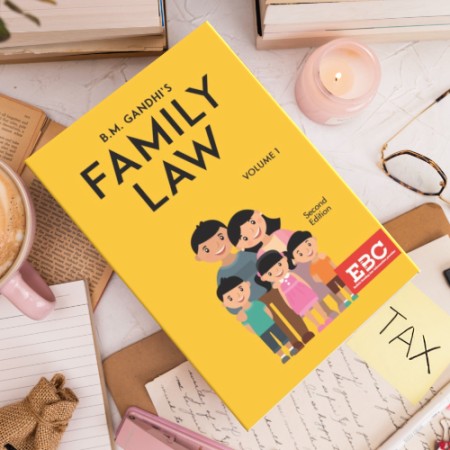

B M Gandhi’s Family Law Volume 2
The revised Volume 2 of B.M. Gandhi’s Family Law, updated by Dr. Sarasu Esther Thomas, provides a clear and contemporary overview of both codified and uncodified family law. It includes new case law on joint Hindu families, women as karta, widows’ property rights, coparcenary devolution, and distinctions between Mitakshara, Marumakkattayam, Shia, and Sunni succession. The edition also highlights the expanded definition of “Hindu” and the role of family courts, including in-camera proceedings. With accessible chapters and key cases emphasised, this volume is an excellent resource for teachers, students, and researchers.
Sociology
This textbook is designed for Indian undergraduate students, offering a clear introduction to sociology and its major concepts, methods, and theories. Part I explains sociology as a science without ideological bias, while Part II focuses on Indian social realities with chapters that begin by outlining the “state of the art” in each theme. Covering a wide range of topics—many introduced for the first time in an Indian textbook—it bridges theory and real-world complexity. By addressing structure and change, micro and macro processes, and both consensus and conflict, the book serves as a valuable guide to understanding sociology and Indian society.
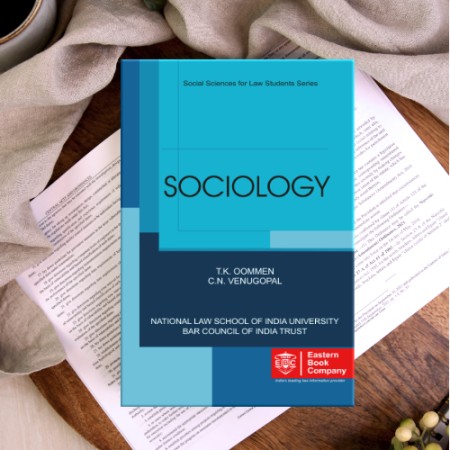
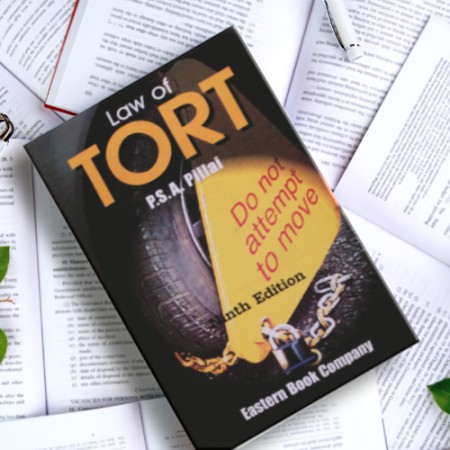
P S A Pillai’s Law of Tort
This classic text on the law of torts has remained a favourite in the academic community for over five decades and is prescribed in numerous law schools across India. Thoroughly researched and clearly written, it offers a predominantly Indian perspective while engaging with relevant foreign jurisprudence. The latest revision by Dr. Avtar Singh updates the work with new material on statutory compensation and a dedicated chapter on consumer protection, reflecting the rapid evolution of tort law in India. Landmark judgments, including M.C. Mehta v. Union of India, are discussed in depth. With its engaging style and exhaustive subject index, the book is an invaluable resource for both law students and practitioners.
















